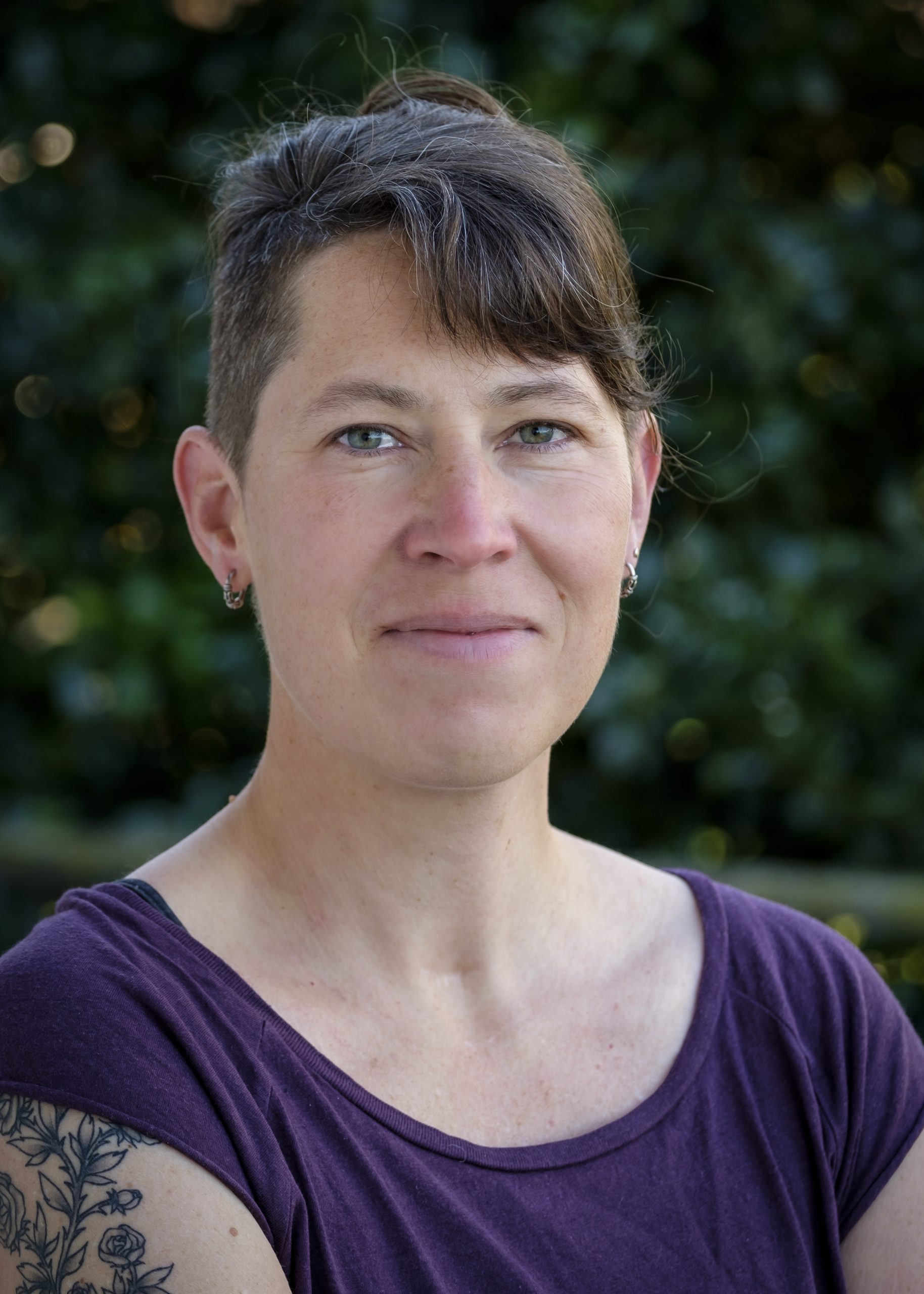Birgit Hofstätter, Lisa Scheer & Anita Thaler
Introduction
In our first issue of the Queer STS Forum we reflected on our queer approach to Science, Technology and Society Studies (STS). We shared how we often find ourselves intervening in meetings, in our social media activities and university courses, during conferences, and when we do research. Most of the time, the main topics we deal with do not directly relate to queer studies, but in a wider sense to queer thinking and issues of social justice. Simply by asking ‘queer questions’[1] and thinking in alternatives, we irritate colleagues, we intervene in academic activities, and we interact with (and thereby learn from) like-minded people.
For the 2021 edition of the Queer STS Forum we came back to our queer approach and set out to assemble further examples. We wanted to collect experiences with queer interventions in education, learning organisations, research projects, teams, etc. and asked for contributions based on our very broad understanding of the term queer. These interventions can happen in/through teaching, art or research and may pose the question of how to treat each other, how to become an inclusive and caring community, or how to tackle hegemonic, excluding, power-maintaining practices and structures.
Queer interventions in teaching and beyond
Five years ago Birgit Hofstätter and Anita Thaler contributed to a German anthology on queering STEM (science, technology, engineering and mathematics). In our contribution we described our take on how STEM education can benefit from queer-feminist interventions (cf. Hofstätter & Thaler 2016). To our mind, the core of queer interventions in teaching lies in questioning normalising tenets, particularly when they lead to naturalisations and/or exclusions such as heteronormativity. With queer interventions in teaching we intend to contribute to a social just democratisation of technological developments and politics.
What are the benefits of such a queer-feminist stance? By questioning heteronormativity we escape the reification of stereotypes attached to the gender binary in regard to STEM. We are also able to address power relations in the context of heteronormativity. Furthermore, by widening the perspective of ‘women in STEM’ to the representation of multiple genders in the network of actors e.g. in technology, we are forced to abandon efforts targeting individuals or singular groups (e.g. ‘women’) with (teaching or technological) designs. Rather, we are forced to think of an inclusive reorganisation of (intersectional) education, research and development. For learners, becoming collaborators rather than receivers is empowering. Being included in shaping learning settings according to one’s needs activates and supports multidimensional, self-directed learning. Additionally, the focus of learning shifts from output to process. Instead of understanding learning as something that is completed by a (good) mark awarded by the teacher, the way of making sense, understanding and successfully applying the learned in a context relevant to the individual learner becomes key. This experience of self-efficacy, too, has an empowering effect on learners.
The proposed reorganisation and democratisation requires participatory (better: cooperative) and transdisciplinary teaching and working designs. In extension to interdisciplinarity, transdisciplinarity involves not only multiple disciplines but also breaks (queers!) the dichotomy/hierarchy of experts and laypersons. For educational settings this means to break the dichotomy/hierarchy of instructor and instructed. As a consequence, learning becomes a process of cooperation, a joint endeavour with everyone contributing to its progress and outcomes. Analogously, when looking at research or any other work, this perspective means knowing about power relations, hierarchies, participation possibilities and opportunities and finding ways to shift power inequalities. Changing or queering educational routines and practices of reproducing hierarchies and dichotomies is not as simple as it sounds but our Forum provides many examples and inspirations.
Contributions
The digital format of our Forum allows contributions of any length and in various forms – audios, videos, images and texts; sharing experiences, conducting analysis, and asking questions. We are happy that this year’s contributors made use of these broad possibilities and we are very pleased to present a collection of very diverse queer interventions. Language also adds to the diversity of this edition. Out of eight pieces, three were submitted in German: a radio feature, an article and a review.
Boka En is no stranger to regular Forum readers. Their contributions always come as thought candy wrapped in poetic expression. This time we received a video and a text on the simultaneousness of the absence and presence of (their) queer body in academia, the paradox of being in_visible. Not much more can or should be said about it: see and experience for yourself.
“Mapping the unseen” by Katrin Ackerl Konstantin and Rosalia Kopeinig also deals with the challenge of making the invisible seen and the unspoken heard. They present collections of artistic interventions on societal taboos – the invisible and unspoken. Two videos allow insights into two artistic interventions in Zagreb/Croatia (2019) and Klagenfurt/Austria (2020). These interventions address LGBTIQ (Lesbian Gay Bisexual Transgender Intersex Queer/Questioning) issues and were selected by the participating art group Vox Feminae. The accompanying text provides the context and further information.
With the video by Daniela Jauk, Solveig (Sol) Haring and Anita Peter Mörth we are entering the classroom. Our working group colleague Daniela proposes seven ingredients of gaga-feminist teaching. The group has been inspired by Jack Halberstam’s book Gaga Feminism: Sex, Gender, and the Edge of Normal (2016). The (very entertaining) video has been online since 2017 and it is about time to give it more attention. The ingredients of their bloody mary hairy cock*tail sums up what queering teaching is all about.
Equally fun and creative is the University of Vienna (Austria) Gender Equality and Diversity unit’s intervention. They have turned the well-known nursery rhyme Row Row Row Your Boat into a protest song of eye rolling feminists over constant irritations they have to bear when insisting that things are not the way they should be in a society based on equality and social justice. Find the song, lyrics and a short text in the Forum.
In the second audio contribution of this Forum, the team of genderfrequenz, a show on Radio Helsinki, Freies Radio Graz, looks back at five years of their queer-feminist programme Umagaunan mit Kaya in German. This programme shares experience of various forms of discrimination and includes options for action. Through its interactive format, the intervention of sharing the reports transforms the negative experience of exclusion and discrimination into political engagement. It can also be seen as an expression of caring and being there for each other. The audio is in German as it is part of the Austrian radio show.
From activism through media we make a sharp turn to activism on the very physical dimension of pleasure. Spencier Ciaralli has studied sexual pleasure stories of women and qenderqueer people. They argue in favour of an intervention through pleasure activism that resists the heteronormative narrative that centres on penetration and orgasm.
In their German text contribution “Technische Sammlungen que(e)rlesen”, Andrea Berger, Sophie Gerber and Martina Griesser-Stermscheg from the Technical Museum Vienna (Austria) reflect on how museums categorize, hierarchize, and discipline their collections. They elaborate on digital museum databases and their role as powerful tools for knowledge and collective memory management and look at possible queer interventions in the assignment of keywords.
What is the German BOYKOTT Magazin (Boycott Magazine in English) which is being published since April 2021 following a successful crowdfunding campaign? And what does one of its editors, Ulla Wittenzellner, have to say about the publication process, distribution and contribution possibilities? Daniela Jauk wrote a German review about the new (pro-)feminist men’s magazine and asked Ulla Wittenzellner for an interview. Find out more about this intervention to boycott patriarchy at the end of our Forum.
References
Hofstätter, Birgit & Anita Thaler (2016). Queer-feministische Technikdidaktik. In: Nadine Balzter, Florian Cristobal Klenk & Olga Zitzelsberger (eds.).Queering MINT. Impulse für eine dekonstruktive Lehrer_innenbildung, Leverkusen: Verlag Barbara Budrich. 179-189.
Hofstätter, Birgit (2012). Queer STS: An Introduction. In: Thomas Berger & Günter Getzinger (eds.). Proceedings of the 11th Annual IAS-STS Conference on Critical Issues in Science and Technology Studies, 7th-8th May 2012 (CD-Rom). Graz: IFZ Eigenverlag. ISBN Nr. 978-3-9502678-3-9.
[1] „In general, by adopting a queer perspective, we have to reflect on the ways we, as researchers, contribute to the reproduction of e.g. gender as a binary and the heterosexual norm. We have to identify hegemonic discourses in our field of research and critically question in which ways they exclude or marginalize perspectives. We have to revise our methodology and the assumptions we base our interpretations of data on. One example for these efforts is that in some cases we shifted our focus from gender as a category of differentiation and tried to find other explanations for the phenomenon at hand. This way we could avoid the reproduction of gender stereotypes and conclusions being drawn on basis of heteronormativity.“ (Hofstätter 2012, p. 4)
 | Birgit Hofstätter, born and raised into a white middle class family in rural Austria, moved to Graz to study (teaching degree for secondary school in philosophy, psychology, pedagogics, and English, master in gender studies, PhD in science, technology and society Studies – interdisciplinarity seems to be their DNA), returned to rural home after 17 years where they currently manage a well-established (more than 25 year old) women’s association, teach yoga, grow food, and engage in local politics. |
 | Lisa Scheer is a sociologist who works in diversity and quality management areas at the University of Graz. She manages the Fellowship Programme for Gender Research, is concerned with questions regarding diversity and equality and aims at supporting the development of quality teaching and learning. Teaching activities at Austrian universities concentrate on gender and family/technology/body/knowledge.. |
 | Anita Thaler is a senior researcher at IFZ (Interdisciplinary Research Centre for Technology, Work and Culture) in Graz, Austria. She heads the research area Gender, Science and Technology and founded the working group Queer STS . Her research analyses mutual interactions of science, technology and society, with a focus on transition and learning processes towards gender equity, sustainability and social justice. |
